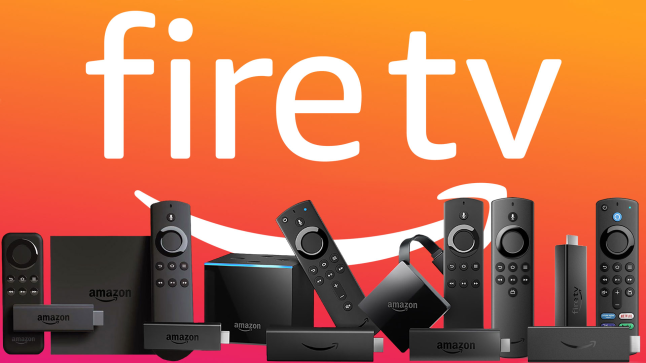How is IPTV Legal? Explained
Internet Protocol Television (IPTV) has become a popular alternative to traditional broadcasting methods, offering users a wide array of channels, on-demand content, and a customizable viewing experience. However, the rise of IPTV has also brought up questions about its legality. This article delves into how IPTV can be legal, the legal frameworks that govern it, and what consumers need to know to make informed decisions. It also explores ROOMTVS as a legal IPTV provider and how it complies with these regulations.

What is IPTV?
IPTV stands for Internet Protocol Television, a system where digital television services are delivered through the internet rather than traditional terrestrial, satellite, or cable formats. IPTV allows users to stream live TV, watch on-demand content, and enjoy interactive features directly from their devices, including smartphones, tablets, smart TVs, and computers.
Types of IPTV Services
- Live Television: Streaming live TV broadcasts as they happen, similar to traditional cable or satellite TV.
- Video on Demand (VOD): Accessing a library of videos, including movies, TV shows, and other content, that can be watched at any time.
- Time-Shifted Media: Watching programs after they have been broadcast live, including catch-up TV or rewinding a show to the beginning after it has started.
Graphic 1: Comparison of IPTV vs. Traditional TV
A graphical representation comparing the key differences between IPTV and traditional TV, focusing on delivery methods, content availability, and user experience.
How IPTV Can Be Legal
The legality of IPTV is determined by the way the service is set up and operated. Legal IPTV services operate under strict licensing agreements, ensuring that content creators, broadcasters, and rights holders are compensated for their work. Here’s how legal IPTV providers, like ROOMTVS, operate within the law:
Licensing and Content Rights
Legal IPTV services acquire the necessary licenses to broadcast or stream content. These licenses are agreements between the content owner (such as a TV network or movie studio) and the IPTV provider, allowing the latter to distribute the content to its subscribers.
- Broadcasting Licenses: These licenses permit the IPTV provider to stream live TV channels.
- Distribution Rights: These rights allow the provider to offer on-demand content, such as movies and TV shows.
Table 1: Example of Licensing Requirements by Content Type
| Content Type | License Required | Example Provider |
|---|---|---|
| Live TV | Broadcasting License | ROOMTVS |
| On-Demand Movies | Distribution Rights | Netflix |
| Catch-Up TV | Time-Shifted Licensing | Hulu |
Regulatory Compliance
Legal IPTV providers must comply with various regulations depending on the country they operate in. This includes adhering to copyright laws, consumer protection laws, and data privacy regulations. For example, in the European Union, IPTV services must comply with the General Data Protection Regulation (GDPR), ensuring that user data is protected.
Chart 1: Regulatory Compliance Checklist for IPTV Providers
A checklist highlighting the key regulatory requirements that IPTV providers must meet to operate legally.
Differences Between Legal and Illegal IPTV Services
Understanding the differences between legal and illegal IPTV services is crucial for consumers who wish to avoid legal trouble and protect their personal data.
Legal IPTV Services
- Licensed Content: All content is licensed, ensuring that rights holders are compensated.
- Transparent Operations: Legal services provide clear terms of service and privacy policies.
- Secure Payment Methods: Legal IPTV providers use secure payment gateways and offer customer support.
Illegal IPTV Services
- Pirated Content: Content is often stolen or redistributed without permission from the rights holders.
- Unsecure Platforms: Illegal services often have poor security measures, putting users at risk of malware and data theft.
- Legal Risks: Users of illegal IPTV services may face fines, legal action, or even imprisonment in some countries.
Graphic 2: Legal vs. Illegal IPTV Services
A visual comparison of the key differences between legal and illegal IPTV services, focusing on content licensing, user security, and legal risks.
The Role of ROOMTVS in Legal IPTV Services
ROOMTVS is an example of a legal IPTV service that complies with all necessary regulations and licensing requirements. It offers a wide range of live TV channels, on-demand content, and more, all through legally obtained licenses.
Licensing Agreements
ROOMTVS has secured licenses from various content creators and distributors, allowing it to legally offer its extensive library of content to users. This includes agreements with major television networks, movie studios, and independent content creators.
- Live TV Channels: ROOMTVS offers a selection of live TV channels across different genres, all fully licensed for distribution.
- On-Demand Content: Users can access a vast library of movies and TV shows, all legally obtained through distribution agreements.
Link to ROOMTVS: Explore ROOMTVS for Legal IPTV
Data Security and Privacy
ROOMTVS complies with international data protection regulations, including the GDPR, ensuring that user data is handled securely and transparently. The service employs advanced encryption methods to protect user information and offers clear privacy policies.
Customer Support and Transparency
ROOMTVS provides 24/7 customer support and transparent operations, offering users peace of mind and reliable service. Unlike illegal IPTV services, ROOMTVS ensures that users have access to support whenever needed, and all transactions are conducted through secure and legitimate channels.
Chart 2: Customer Satisfaction with ROOMTVS
A chart showing customer satisfaction ratings for ROOMTVS, highlighting the importance of legal compliance and user support.
Global Regulations Governing IPTV
The legality of IPTV services varies across different countries, with regulations often tailored to protect local content creators and broadcasting rights. Understanding these regulations is crucial for both providers and consumers.
United States
In the U.S., IPTV services are legal as long as they have the appropriate licenses. The Federal Communications Commission (FCC) regulates these services, ensuring compliance with broadcasting and content distribution laws.
- FCC Regulations: IPTV providers must adhere to FCC guidelines, which cover everything from content licensing to advertising practices.
European Union
The EU has strict regulations governing IPTV services, particularly concerning copyright protection and data privacy. IPTV providers in the EU must comply with the GDPR, which mandates strict data protection standards.
- Copyright Laws: IPTV providers must secure rights to broadcast or stream content within EU member states.
- GDPR Compliance: Providers must ensure that user data is handled according to GDPR standards.
Table 2: IPTV Regulations by Region
| Region | Key Regulations | Enforcement Body |
|---|---|---|
| United States | FCC Guidelines, Copyright Laws | Federal Communications Commission (FCC) |
| European Union | GDPR, Copyright Laws, Content Distribution | European Union Intellectual Property Office (EUIPO) |
| Canada | CRTC Guidelines, Copyright Laws | Canadian Radio-television and Telecommunications Commission (CRTC) |
Asia and Other Regions
In Asia, the legality of IPTV varies widely by country. Some countries have embraced IPTV as a legitimate form of media consumption, while others have stricter controls to protect local content industries.
- China: IPTV is tightly regulated, with providers required to obtain licenses from the government.
- India: IPTV is legal but heavily regulated, with strict licensing requirements for providers.
The Risks of Using Illegal IPTV Services
While the appeal of cheap or free IPTV services is strong, the risks far outweigh the benefits. Users of illegal IPTV services face numerous risks, from legal consequences to cybersecurity threats.
Legal Risks
- Fines and Penalties: In many countries, using illegal IPTV services can result in significant fines. In some cases, users may even face criminal charges.
- Civil Lawsuits: Rights holders may file civil lawsuits against users of illegal IPTV services, seeking damages for the unauthorized distribution of their content.
Cybersecurity Risks
- Malware and Viruses: Illegal IPTV services are often riddled with malware, posing a significant risk to users’ devices and personal data.
- Data Theft: Hackers can exploit illegal IPTV services to steal personal information, including credit card details and other sensitive data.
Graphic 3: Risks of Illegal IPTV Services
A graphical representation of the risks associated with using illegal IPTV services, focusing on legal, financial, and cybersecurity threats.
Why Legal IPTV is the Best Choice
Choosing a legal IPTV service over an illegal one offers numerous advantages, including better service quality, legal peace of mind, and superior content offerings.
Superior Content Quality
Legal IPTV providers, like ROOMTVS, offer high-quality streams with minimal buffering and interruptions. They also provide a wide range of content, including the latest movies, TV shows, and live sports.
Legal and Secure
Using a legal IPTV service means you can enjoy your favorite content without worrying about legal repercussions. Legal providers comply with all necessary regulations, ensuring that their services are safe and secure.
Reliable Customer Support
Legal IPTV providers offer reliable customer support, helping users resolve issues quickly and efficiently. This is in stark contrast to illegal services, which often disappear without a trace, leaving users without recourse.
Chart 3: Benefits of Legal IPTV Services
A chart outlining the benefits of choosing legal IPTV
Place your order
Place your order by choosing your preferred subscription period
Get your account
This process can take 5 to 15 minutes.To speed up the process, please contact us via Whatsapp.
Enjoy your time
Enjoy all channels, films and series now!
Read Our Blogs: Discover More Content

Buy IPTV Subscription: Compare the Best Providers for 2024
Buy IPTV Subscription: Compare the Best Providers for 2024 In today’s fast-paced digital world, the demand for flexible, high-quality streaming options is higher than ever.

Best Buy IPTV Discover the Top IPTV Services You Can Trust
Best Buy IPTV Discover the Top IPTV Services You Can Trust Buy IPTV from trusted providers offering premium streaming services with thousands of live channels,

Buy IPTV: Why Roomtvs is Your Go-To Choice for Premium IPTV Service
buy IPTV, In today’s digital age, streaming has become an essential part of entertainment, and IPTV (Internet Protocol Television) services are leading the way. Whether
For more information about IPTV services and to explore in-depth reviews and comparisons, visit IPTV Reviews and Guides. This resource offers a comprehensive analysis of the best IPTV options available, helping you make an informed decision on the right service for your needs.


